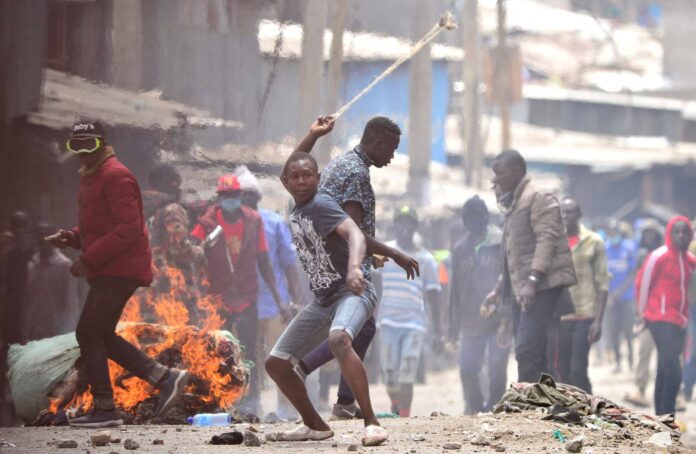During peaceful demonstrations in Africa, it’s never a guarantee to the population or to the security forces that the protest will remain peaceful until the end, and that is why most of the popular demonstrations are often barred from happening or happen with strict observance from security forces.
Peaceful demonstrations in Africa yield less, showing the dissatisfaction and grievances of the protestors, but most of the time these are capitalized by anti-government elements as opposed to anti-policy elements, which should be the core cause of peaceful protests.
Also, criminal elements most of the time tend to infiltrate peaceful demonstrators, which results in social disorder and civil disobedience, which attracts brutal responses from the police and security agencies.
George Monbiot wrote in The Guardian News four months ago that, “In the UK, one can now potentially receive a longer sentence for public nuisance (non-violent civil disobedience) than for rape or manslaughter.”
Many states in Africa and around the world have enacted tough legislation against demonstrations and protests to guarantee the security of national interests and general national security, and Kenya could be in line for the same.
Led by mostly Gen-Z Kenyans on social media, major Kenyan streets turned into shocking scenes of deadly chaos as demonstrations began on June 18 against President William Ruto’s plan to introduce a range of new taxes.
The protesters had demanded that legislators vote against the controversial bill, seeking to impose new taxes on a country where frustrations over the high cost of living have simmered for years.
On Monday, July 1, 2024, the Kenya National Commission on Human Rights (KNCHR) said that 39 people had been killed and 361 injured during the two weeks of demonstrations.
The Commission condemned, in the strongest terms possible, the unwarranted violence and force that was inflicted on protesters, medical personnel, lawyers, journalists, and safe spaces such as churches, medical emergency centers and ambulances.
KNCHR condemned the violent and shocking acts of lawlessness that were exhibited by some of the protesters, including attacks on the parliament and other government buildings. The body also highlighted what it said were “unacceptable” incidents of the “wanton destruction” of property linked to some politicians, threats, and violence against them.
Damage to property in protests on June 25 was estimated at 2.4 billion Kenyan shillings ($18.6 million). According to a statement by the Kenyan President, William Ruto, the Office of the Chief Justice, Parliament, and City Hall were all burned.
Who is to pay for all these losses? Definitely, it’s the Kenyans! The country cannot survive without the parliament, the infrastructure, and all that was destroyed by the protesters.
This has been the most serious crisis to confront Kenyan President William Ruto since he took office in September 2022 following a deeply divisive election in a nation often considered a beacon of stability in a turbulent region, but now Kenya and some of its individual citizens are now counting losses.
As opposed to Uganda Police, Kenya’s police have recently received international appraisals for being democratic, and during the recent presidential visit to Washington, DC, Kenya’s president and his US counterpart emphasized the deployment of the state’s police force to Haiti to help enforce and maintain law and order. But 39 people died at the hands of an internationally accredited police force.
I am just imagining how many people would have died in Uganda if the police even has officers with criminal and financial sanctions!
There are very many forms of showing dissatisfaction or disagreements over policies or even the regime that citizens, like in my country, Uganda, should take, other than acts of civil disobedience.
Ugandans should know that violent approaches as a form of dissent are always undesirable, as this affects even the innocent, which makes brutal suppression’s and responses from the police inevitable!
In the end, many people will always die in the scuffles, either with the police or between the protestors. Looting and destruction of property are always inevitable for marauders.
Richard Bard Byamukama is a lawyer and a security studies expert.















